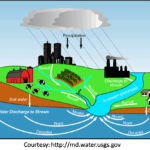How Much is an average Civil Engineering Salary?
Civil Engineering salary in the United State has a median of $88,570 in 2020. The best-paid 25 percent of civil engineers made $115,110 that year, while the lowest-paid 25 percent of civil engineers earned a salary of $69,100.
Civil Engineers have excellent upward mobility (advancements and salary) opportunities in their career. The work environment and job requires average complexities and that is why stress-level for civil engineers is low compared to other engineering careers but the flexibility of alternate working schedule and work-life balance is below average for civil engineers as construction requires more time on-site presence.
Rankings
Though civil engineering salaries are not the highest among other engineering jobs, Civil Engineers are ranked #1 in Best Engineering Jobs according to their ability to offer an elusive mix of factors.
#1 in Best Engineering Jobs
#16 in Best STEM Jobs
#43 in 100 Best Jobs
Source: US News Jobs Ranking

Top 10 Civil Engineering Salary Careers
Top 10 Highest Paying Civil Engineering Salaries for Different Careers:
1) Engineering Project Managers
Education: A civil engineering diploma or degree is required.
Job Description: An engineering project manager plans, directs, and organizes projects, including preparing proposals, maintaining financial records, and product strategy, and ensuring the project conforms with safety regulations.
Average Salary: $65,175 – $170,456
Annual Median Salary: $110,287
2) Senior Civil Engineer
Education: A bachelor’s degree or civil engineering diploma with related experience is required.
Job Description: A civil engineer plans, designs, develops, and manages projects to construct or repair buildings, bridges, highways, and other structures.
Average Salary: $63,026 – $134,354
Annual Median Salary: $92,246
3) Engineering Managers
Education: A civil engineering diploma or degree is required.
Job Description: An engineering manager plans, directs, organizes, controls, and evaluates the activities of the engineering department, project, or firm.
Average Salary: $65,175 – $170,456
Annual Median Salary: $110,287
4) Civil Engineer
Education: A bachelor’s degree or civil engineering diploma with related experience is required.
Job Description: A civil engineer plans, designs, develops, and manages projects to construct or repair buildings, bridges, highways, and other structures.
Average Salary: $63,026 – $134,354
Annual Median Salary: $92,246
5) Architect
Education: Post-secondary education is required. A bachelor’s degree or a diploma from a vocational school is preferred, as well as an internship.
Job Description: An architect conceptualizes plans and creates designs to construct and renovate commercial, institutional and residential buildings.
Average Salary: $50,137 – $111,412
Annual Median Salary: $70,180
6) Engineering Inspectors and Regulatory Officers
Education: A civil engineering diploma or degree is required.
Job Description: Engineering inspectors inspect transportation vehicles, weighing meters, industrial instruments, processes, and equipment to ensure they comply with government and industry regulations.
Average Salary: $53,620 – $140,381
Annual Median Salary: $91,766
7) Civil Engineering Drafter
Education: A civil engineering diploma or degree is required.
Job Description: Civil drafting technologists and technicians prepare engineering designs and related technical information.
Average Salary: $41,712 – $81,338
Annual Median Salary: $62,568
8) Civil Engineering Technologist
Education: A civil engineering diploma or degree is required.
Job Description: A civil engineering technologist develops engineering drawings and designs from concepts and sketches which have already been laid out. They also prepare construction specifications, and estimates for the cost of materials and labor, and conduct field surveys and inspections, of all types of construction buildings and structures.
Average Salary: $41,712 – $81,338
Annual Median Salary: $62,568
9) Civil Engineering Technician
Education: A civil engineering diploma or degree is required.
Job Description: A civil engineering technician assists in developing engineering drawings and specifications and performs other technical duties pertaining to civil engineering.
Average Salary: $41,712 – $81,338
Annual Median Salary: $62,568
10) Land Surveyor
Education: A civil engineering diploma or degree is required.
Job Description: Land surveyors plan, direct and conduct legal surveys in order to create and/or determine property boundaries, and contours and prepare for drawings, plans, records, and official documents.
Average Salary: $30,449 – $120,318
Annual Median Salary: $60,482
*Data were taken from PayScale and WorkBC.ca
What is a good civil engineering salary?
A good civil engineering salary would be $75,000 which can help maintain a good lifestyle for a fresher civil engineer. According to the census, the national average household income in 2019 was $68,703. So, a civil engineering salary of $75,000 will be just enough for an average lifestyle in the United States.
Why is civil engineering salary less than other engineering jobs?
A civil engineering salary increases with the number of years of experience in their career and their expertise. More experience, the better the salary of a civil engineer. Another major factor of why civil freshers are underpaid is the size of the construction project and the number of people involved in it. A typical construction project involves at least 40-50 employees and 250+ laborers, which generally has low margins or fixed margins. The cost of construction may also go up and may cause a loss if any error occurs at the construction site. So, in order to keep the cost within budget, civil engineering freshers are generally paid less, as they have less experience of working at the site.
Is civil engineering a good career?
The civil engineering career is ranked #1 in engineering jobs. Civil Engineering is considered a good engineering branch and students pursuing a course in the branch get different types of jobs after college.
Is civil engineering career good for the future?
The future of civil engineering globally
Grand View Research(GVR), Inc’s latest report says that the global civil engineering market size, by 2025, is expected to be valued at a whopping 12.08 trillion US dollars. The report also states that in 2019 the global civil engineering market size was estimated at 8.73 trillion US dollars and is projected to grow at a CAGR (Compound Annual Growth Rate) of 5.4% from 2020 to 2027. According to the latest report by Million Insights, the market size of Europe civil engineering is expected to be 2,412.9 billion US dollars by 2025.
All these statistics promise a bright future for civil engineers across the world. Also, civil engineering is globally ranked as one of the safest, in-demand engineering jobs for the future by Entech, one of the world’s leading specialist engineering recruitment agencies.
Common Types of Projects Civil Engineers Work On
Here are some of the projects civil engineers commonly work on:
- Residential buildings
- Commercial buildings
- Industrial buildings
- Roads
- Railways
- Waterways
- Bridges
- Dams
- Levees
- Water treatment systems
- Tunnels
- Schools
- Hospitals
Civil engineers may work in supervisory positions as project managers, consult with other engineers, test the properties of building materials and take measurements of natural elements like wind and seismic activity.
Common Responsibilities of A Civil Engineer
Here are some of their other common job responsibilities:
- Do structural analysis and Create designs of infrastructure projects and systems in the public or private sector.
- Submit construction project proposals to clients, supervisors, or governmental authorities.
- Participate in and supervise the building and maintenance of infrastructure
- Study climate, weather, pollution, and renewable energy systems like wind, hydropower, and solar to ensure infrastructure projects are safe for the environment.
- Study geological data from maps, surveys, site layouts, elevation maps, and other plans in the planning stage of new infrastructure projects.
- Calculate the cost estimates for building materials, equipment, and labor to ensure the financial feasibility of a project.
- Apply for permits to local, state, and federal authorities to ensure adherence to governmental and industry regulations.
- Assess and prevent the risks and hazards infrastructure projects may present to the public.
- Perform tests on building materials such as steel, concrete, and wood to confirm their stability.
- Maintain, repair, and replace outdated infrastructure projects.
- Collaborate with architects, city planners, landscape designers, and other construction professionals.




